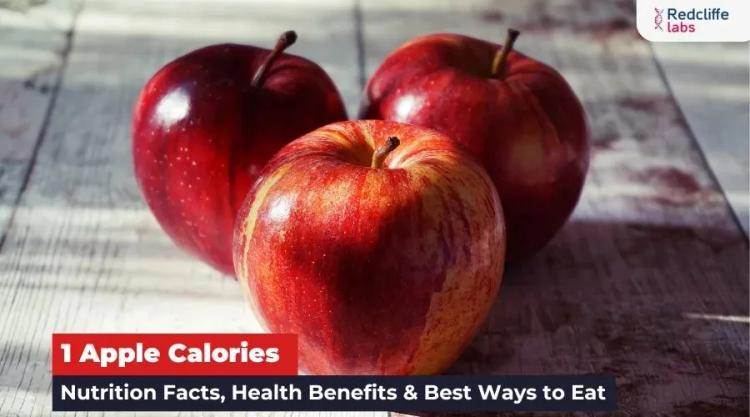Vitamins in Mango: Benefits, Nutrition, and Recipes

Medically Reviewed By
Dr Divya Rohra
Written By Muskan Taneja
on Feb 17, 2025
Last Edit Made By Muskan Taneja
on Jul 19, 2025

Did you know that mango is the national fruit of not one but three countries? India, Pakistan, and the Philippines are three countries where mango is the national fruit.
Before discussing the vitamins in mangoes, let us explore some interesting facts about them in India.
| Mangoes were first cultivated in India over 5,000 years ago. | The first cultivation is believed to have occurred around 5,000 years ago in southern India, the Andaman Islands, and Myanmar. |
| The name ‘mango’ originated in India. | The term 'mango' is believed to have originated from the Tamil word ‘mangai’ or the Malayalam word ‘manga’. Portuguese traders adopted the name ‘manga’ when they settled in Southern India. However, in the 15th and 16th Centuries, the British popularized the word ‘mango’. |
| India is the World’s largest producer of mangoes. | Over 43 million tonnes of mangoes are produced globally. India is the largest mango producer, accounting for over 40% of the world supply. |
| People think the oldest living mango tree is 300 years old. | East Khandesh in Central India has the oldest mango tree (300 years old). Surprisingly, the ancient tree still produces mango fruit. |
| Mangoes are considered a symbol of love and friendship. | Because of their great blend of taste and nutrition, mangoes are often gifted in baskets as a symbol of love and friendship. |
| Mangoes have a religious connection as well. | Mango trees are associated with sacred figures like Buddha in Buddhist and Hindu traditions. It is believed he used to meditate under their shade. |
All About Mango in India
In India, there are over 100 different varieties of mangoes. Among all the varieties, ‘Alphonso’ is the most popular variety in India. ‘Alphonso’ or ‘Hapus’ is the most expensive and the finest variety of mangoes. They are grown particularly in western India, including Ratnagiri, Raigad, and Sindhudurg.
Other popular varieties of mangoes include:
- Langra
- Chaunsa
- Badami
- Safeda
- Totapuri
- Neelam
- Dasheri
- Himsagar
Did You Know?
Mangoes are botanically related to cashews and pistachios. They all belong to the Anacardiaceae family or cashew family.
Keep reading to find more of these facts and benefits related to vitamins in mango.
Vitamins in Mango
The vitamins, minerals, and antioxidants in mangoes provide overall bodily benefits. Besides, they are also high in sugar, which may lead to weight gain. So, eat them in moderation. They are also rich in vitamins and minerals. The following are the vitamins in mangoes.
- Vitamin A
- Vitamin B6
- Vitamin C
- Vitamin E
- Beta-Carotene
- Vitamin B9
Here is the nutritional breakdown of 165 grams of fresh mango:
| Nutrient | Nutritional Value |
| Calories | 99 |
| Carbs | 24.7 grams |
| Protein | 1.4 grams |
| Fiber | 2.6 grams |
| Vitamin C | 67% of the Daily Value (DV) |
| Vitamin B6 | 12% of the DV |
| Vitamin A | 10% of the DV |
| Vitamin E | 10% of the DV |
| Sugar | 22.5 grams |
Each nutrient and vitamin in mango provides immense health benefits. Let’s dive into it.
Also, read https://redcliffelabs.com/myhealth/fruit/calories-in-a-mango-nutrition-facts-benefits-and-more/
Vitamin A in Mangoes
A hundred grams of mango contains about 54 micrograms of vitamin A. Mangoes are a great source of vitamin A, which is important for eye health. However, the amount of vitamin A can vary depending on the cultivar. The following are the surprising benefits of vitamin A in mangoes.
- Vitamin A keeps bones healthy and boosts the immune system.
- It can keep the reproductive system healthy.
- It can lower the risk of infection and respiratory diseases.
Alphonso, or the ‘King of Mangoes,’ contains the highest vitamin A content in India. It is primarily grown in the Ratnagiri region of Maharashtra and is known for its high vitamin and flavor content.
Vitamin B6 in Mangoes
Vitamin B6 is important for cognitive development and the immune system. A ¾ cup serving of mango provides 8% of the daily value of vitamin B6. Did you know vitamin B6 in mangoes provides immunity benefits? Check out some of them.
- It can help maintain normal blood sugar levels and normal nerve functions.
- It can help produce hemoglobin, which carries oxygen in red blood cells.
- Vitamin B6 in mango can help maintain brain function, support a good mood, and regulate sleep patterns.
- Vitamin B6 helps in cognitive development.
- It helps your body maintain normal immune system function.
‘Kesar’ has the highest amount of vitamin B6 among all the Indian mangoes, primarily grown in the Gujarat region of India. Because of its sweet, juicy flesh and distinctive saffron-like color, it is also popularly known as ‘Queens of Mangoes.
Vitamin C in Mangoes
A hundred grams of mangoes contain 36.4 mg of vitamin C. Meanwhile, one cup of sliced mango has about 165 calories and provides nearly 70% of the recommended daily intake of vitamin C. Here’s how vitamin C in mangoes benefits overall health.
- It can help improve iron absorption in the body.
- Vitamin C helps produce WBCs, which fight disease, infections, and illnesses.
- Vitamin C helps in collagen production, which is important for hair growth.
- The antioxidant content helps fight free radicals and reduce oxidative stress.
- Vitamin C in mangoes helps in wound healing.
- Vitamin C plays an important role in the growth of bones, muscles, and tendons.
Dashehari mangoes have the highest vitamin C or ascorbic acid content. Besides, various studies have proved that raw mangoes are higher in vitamin C and more acidic than ripe ones.
Vitamin E in Mangoes
Mangoes are a good source of vitamin C, fiber, and folate. However, this fruit is also rich in vitamin K. One cup of mango contains about 1.5 milligrams of vitamin E. Meanwhile, ½ cup of sliced mango contains about 0.7 milligrams of vitamin E. Discover the role of vitamin E in mangoes.
- It is necessary to boost healthy hair and skin.
- It can help fight off skin damage.
- For an extra glowing effect, use the fruit as a skincare remedy.
Kesar and Rumani mangoes are two varieties in India that are high in vitamin E.
Vitamin K in Mangoes
A cup of sliced ripe mango contains approximately 6.93 micrograms of vitamin K. Meanwhile, 100 grams contain 4.2 micrograms of vitamin K. Have you ever thought vitamin K content can improve overall health? The following are the surprising benefits of vitamin K in mangoes.
- Vitamin K helps in blood clotting.
- Vitamin K in mango is important for bone health.
- Vitamin K helps prevent anemia.
Alphonso and Deshehari mangoes in India contain the highest vitamin K content. However, the amount varies depending on the variety and ripeness of the fruit.
Vitamin B9 in Mangoes
Folate, or vitamin B9, is important for pregnant women. One mango contains 144 mcg of folate. For pregnant women, a ½ cup serving of mango is an excellent source of folate. Here is how vitamin B9 enhances your overall health.
- Folate content can help prevent congenital disabilities.
- It helps with DNA duplication, which is necessary for healthy cell division.
- It is an essential nutrient for brain development.
- It can promote red blood cells.
- It is important for healthy fetal growth and development.
Dashehari is a popular mango variety that is high in folate. However, various studies have shown that there isn’t a definitive single variety; smaller and unripe mangoes contain the highest amount of folate.
Beta Carotene in Mangoes
Beta carotene is a pigment that gives mangoes its yellow-orange color. The content amount can vary depending on the density and variety of the fruit. To an estimate, a 165-gram cup of raw mango contains 1,060 mcg of beta-carotene.
Beta-carotene later converts to vitamin A. When converted, beta-carotene provides many benefits to the body.
- It can fight diseases or infections.
- It can prevent the risk of cardiovascular diseases
- It can lower the risk of some cancers.
- Beta-carotene content helps boost the immune system.
- The anti-inflammatory properties help reduce inflammation in the body.
- The antioxidant properties protect cells from damage caused by free radicals.
Kesar, Amrapali, and Sensation contain the highest beta-carotene content. Besides, ‘Dashehari,’ ‘Mulgoa,’ and ‘Arunika’ also contain some beta-carotene.
Also, read: Is mango good for fat loss
10 Benefits of Mango Sexually
This versatile fruit provides a treasure trove of sexual health benefits. The following are the sexual health benefits of mangoes for men and women.
Sexual Health Benefits of Mango for Men
- The nutrients and vitamins in mango can enhance stamina and energy.
- The potassium content in a mango fruit can help improve blood flow, leading to better erectile dysfunction.
- Mangoes have only a small amount of zinc, which may benefit testosterone production and sperm health.
- Magnesium in mango can help reduce stress and anxiety, boosting stamina and sexual performance.
Sexual Health Benefits of Mango for Women
- Vitamins in mango can provide a quick energy boost, potentially enhancing libido in women.
- L-arginine, an amino acid in mango, can improve blood flow to the genitals.
- Vitamin B6 can promote a healthy menstrual cycle and improve sexual well-being.
- Hydration is necessary for a healthy vaginal lubrication. The high water content in mango can contribute to overall hydration, improving natural lubrication.
- Mangoes contain vitamins, especially vitamins A and B, which contribute to a sense of well-being and emotional connection, essential for fulfilling sexual desires.
The Bottom Line
Nutrients and vitamins in a mango positively affect your health. So, once the season arrives, add them to your daily diet through smoothies, salads, and ice cream. Enjoy the health benefits of this delightful, tasty, and nutritious fruit. Remember to have mangoes at a moderate level, as excessive consumption may have potential side effects.



